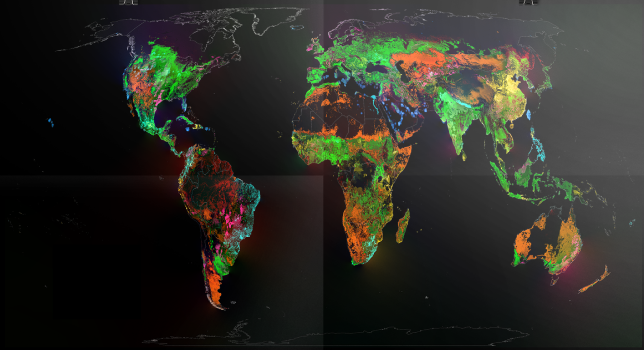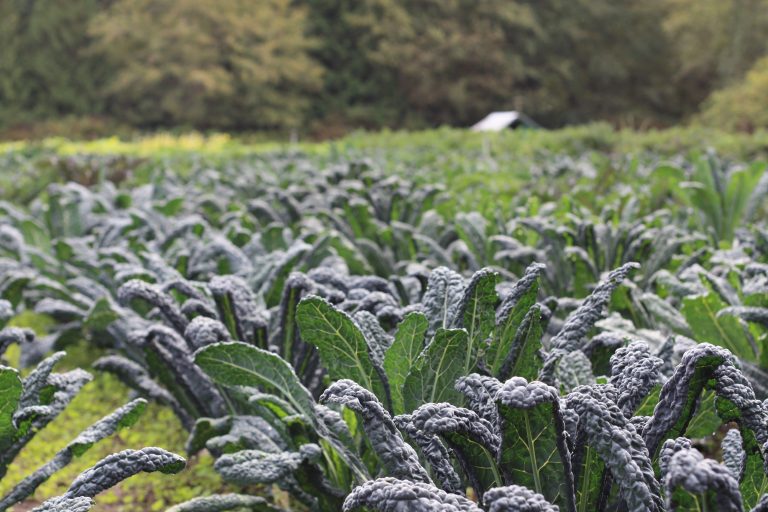Tuesday, November 6, 2018
12 p.m. – 1:30 p.m.
Room B151, School of Population and Public Health (SPPH), UBC

Dr. Stephanie Godrich
In this presentation, Dr. Stephanie Godrich will discuss determinants of food insecurity and showcase an Australian-first project that is examining the issue using a systems thinking approach. The presentation will also highlight the value of social mobilisation, co-design and cross-sector collaboration to address complex problems.
About Dr. Stephanie Godrich
Dr. Stephanie Godrich is a Registered Public Health Nutritionist with both the Nutrition Society of Australia and the World Public Health Nutrition Association. Over the past 12 years, she has developed, delivered and evaluated numerous community-based food literacy programs with multiple population groups. Stephanie has also worked in the university sector in statewide project coordination, research and lecturing positions, and independently as a public health consultant to government and non-government organisations. Stephanie’s PhD focused on food security in rural and remote Western Australia.
Her current research focuses on supporting communities to create healthy, resilient and sustainable food environments. She is currently leading an Australian-first project which includes working with cross-sector stakeholders such as food producers, social workers, educators, town planners and health workers to build communities’ capacity to achieve healthy food for all.
Read More | No Comments
By Joyce Liao on October 31, 2018
Market Recipe Blog: Fall Bounty Flatbread

Red lentil hummus, seasonal roasted kabocha, caramelized onions, and kale are all featured on this beautiful fall flatbread. A warming, colourful and delicious meal that you’ll want to share with friends and family!
Fall Bounty Flatbread (Vegan)
 Yield: 4 servings
Yield: 4 servings
Recipe
HUMMUS
- 1 cup dry red lentils
- 4 medium carrots, roughly chopped
- 2 unpeeled garlic cloves
- 3 tbsp olive oil + more as needed
- ¼ tsp turmeric powder
- ½ tsp paprika
- 1 tsp cumin
- Salt & pepper, to taste
- 1 tbsp miso paste
- 2 to 4 tbsp lemon juice
- ¼ cup tahini
FLATBREAD
- 1½ cups whole wheat flour
- 1 tbsp baking powder
- ¼ tsp sea salt
- ¾ cup plain unsweetened yogurt (dairy or non-dairy)
- 1 to 2 tbsp vegetable oil
TOPPINGS
-
-
- Vegetable oil
- ½ medium kabocha squash, cut into strips
- 1 onion of your choice, thinly sliced
- A splash of balsamic vinegar (optional)
- ½ bunch kale, washed and chopped into ribbons
- Salt & pepper, to taste
- Balsamic glaze
- Toasted pumpkin seeds
Instructions
HUMMUS
- Cook lentils in a generous 3 cups of water and cook according to package directions. Once cooked through, drain thoroughly.
- Toss chopped carrots and garlic cloves in about a tablespoon of olive oil with turmeric, paprika, cumin, salt, and pepper. Toss the kabocha squash in oil, salt, and pepper as well. Spread out the vegetables into a single layer on a baking tray (keeping the carrots and squash on separated) and roast at 400°F for 25 to 30 minutes, or until fork-tender and lightly charred. Once cool enough to handle, peel the garlic cloves.
- In a food processor, blend the lentils, roasted carrot, peeled garlic, remaining olive oil, miso, lemon juice, and tahini until smooth.
FLATBREAD
- Briefly mix the flour, baking powder, and salt together in a medium mixing bowl.
- Make a well in the center and add the yogurt into the well. Mix with a spatula or your clean hands until a rough dough is formed.
- Flip the dough out onto a lightly floured surface and knead for a minute or two.
- Divide the dough into 4 balls. Flatten each ball into an oblong shape until about ¼” thick.
- Heat a large skillet over medium-high heat. Add about 2 tsp of cooking oil to the pan per flatbread, and once the oil is hot, fry the shaped dough one at a time. Cook 1 to 2 minutes per side, or until golden brown and puffed up.
TOPPINGS
- Heat about 2 tsp vegetable oil in the same skillet used to cook the flatbread. Cook onions until caramelized and add a splash of balsamic vinegar near the end of cooking. Add the kale to the pan and sautee until wilted. Season with salt and pepper to taste.
ASSEMBLY
- Spread a generous layer of hummus on each flatbread. Top with sauteed kale, roasted squash, a drizzle of balsamic glaze, and pumpkin seeds. Keep warm in an oven at the lowest temperature until ready to serve.
Pick up produce at any of our three weekly markets: Tuesdays 4-6:30PM at the UBC Farm, Wednesdays 11:30AM-1:30PM at the UBC Bookstore, and Saturdays 10AM-2PM at UBC Farm. Learn more about our produce and browse other recipes in our Market Recipe Blog. Recieve regular market recipes from our newsletter here.
Read More | No Comments













 Yield: 4 servings
Yield: 4 servings